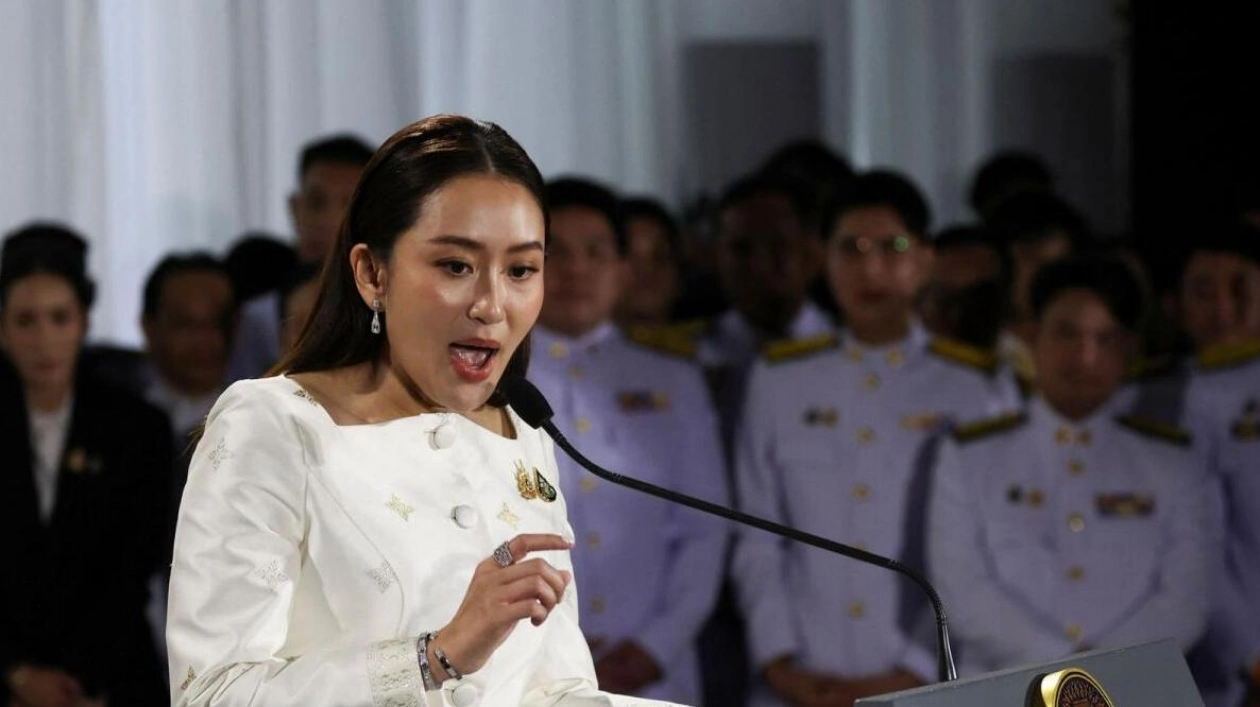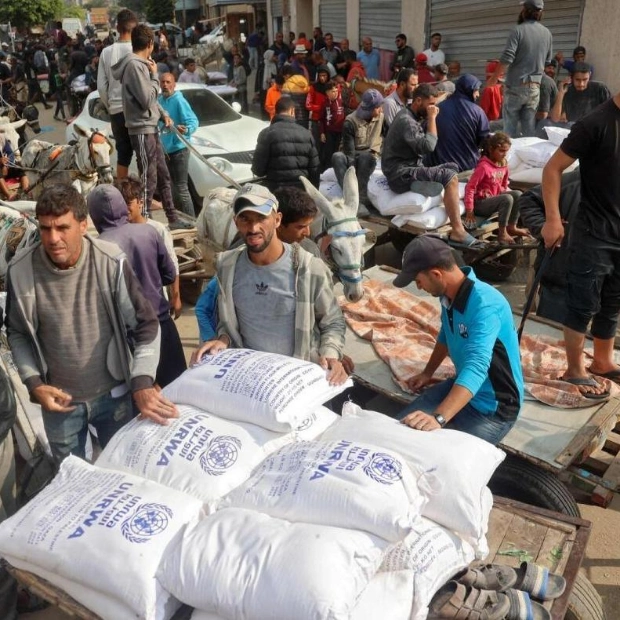Thailand's new Prime Minister, Paetongtarn Shinawatra, the daughter of the controversial billionaire ex-premier Thaksin, pledged to invigorate the kingdom's sluggish economy upon her formal inauguration on Sunday. At 37, Paetongtarn is the youngest ever PM of Thailand, ascending to power after a court removed the previous premier and dissolved the main opposition party, igniting a fresh wave of political unrest. She is the third Shinawatra to hold the prime ministership, aiming to evade the tumultuous fate that befell her father and aunt Yingluck, both ousted in military coups.
Paetongtarn received King Maha Vajiralongkorn's official written command to form a government during a ceremony at the headquarters of a former pro-Thaksin TV station. She urged all Thais to unite in efforts to rejuvenate the economy, which has faltered in its recovery from the Covid-19 pandemic. 'As head of the government, I will collaborate with parliament with an open heart, receptive to all ideas to foster the country's development,' she declared after the ceremony. 'Fellow Thais, this responsibility cannot be shouldered by the prime minister alone. I hope to harness the collective strength of all generations and talents across Thailand—from the cabinet, the coalition, civil servants, the private sector, and the people.'
Thaksin, 75, was a notable presence at the event, standing beside Paetongtarn's husband in the front row. 'She must work diligently. Her strength lies in her youth, her humility allowing her to seek assistance from anyone,' Thaksin remarked to journalists post-ceremony. 'Twenty-three years ago, she stood behind me, but today I stood behind her.'
Paetongtarn leads a coalition government spearheaded by her Pheu Thai party, a reincarnation of the political movement her father initiated in the early 2000s, now including some pro-military factions historically opposed to Thaksin. Her rise to power followed the Constitutional Court's dismissal of previous premier Srettha Thavisin for ethical breaches involving the appointment of a cabinet member with a criminal record. Thailand's political landscape has been shaped for over two decades by the rivalry between Thaksin and his allies and the conservative, pro-military, pro-royalist elite. Despite their electoral successes, Thaksin-linked parties have seen their governments disrupted by coups and judicial rulings.
Paetongtarn, a recent entrant into politics, managed the hotel division of the family business until late 2022 when she joined the political fray ahead of the general election, where Pheu Thai unexpectedly fell to second place behind the progressive Move Forward Party (MFP). Despite securing the majority of seats in the election, MFP's bid to form a government was thwarted by conservative, junta-appointed senators, who were alarmed by its plans to reform royal insult laws and dismantle powerful monopolies. This enabled Pheu Thai to forge an uneasy alliance with pro-military parties, leading to Srettha's appointment. Less than a year later, he became the third prime minister from a Thaksin-backed party to be ousted by the Constitutional Court.
Paetongtarn will be closely scrutinized for signs of her father's influence, a figure of immense yet contentious political sway in modern Thai history. She assured reporters at a press conference that she would consult Thaksin when necessary but emphasized her independence, asserting her own ideas and objectives. When asked if he would assume an official advisory role, Thaksin responded, 'Not necessary. I am old. I am 75 years old, she can ask me anything.'
Thaksin revolutionized Thailand's politics in the early 2000s with populist policies that garnered him and his party enduring loyalty from rural communities, securing two election victories. However, this success was marred by opposition from Thailand's influential elites and conservative establishment, who viewed his governance as corrupt, authoritarian, and socially destabilizing. Overthrown as prime minister in 2006, Thaksin fled into exile two years later but continued to comment on and, according to critics, meddle in national affairs. He returned last year on the day Srettha assumed the premiership, only to be imprisoned on charges of graft and abuse of office related to his tenure. His eight-year sentence was swiftly reduced to one year by the king, and he was subsequently granted parole due to his age and health, culminating in a royal pardon on Saturday.






